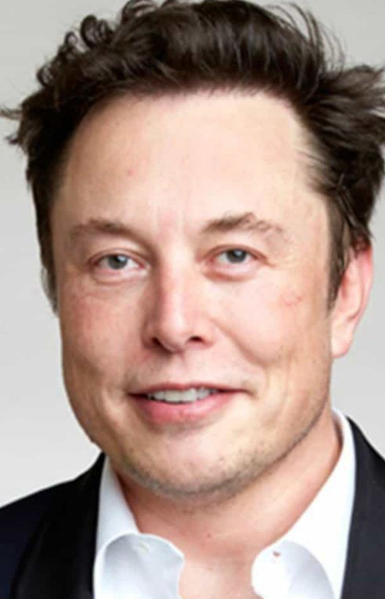
“Have Three Kids or Watch Civilization Collapse” — Elon Musk Issues Stark Warning on Population Decline

In a series of emphatic posts on X (formerly Twitter), billionaire entrepreneur Elon Musk has once again sounded the alarm on what he calls one of humanity’s most pressing and misunderstood existential threats — population collapse. The Tesla and SpaceX CEO, known for his bold predictions and controversial takes, declared that unless people start having at least three children per family, the world could face dire consequences. His words have reignited a global debate on declining birth rates, societal values, and the future of civilization as we know it.
Musk, who is himself a father of ten, made his latest comments on X, writing, “People who have kids do need to have 3 kids to make up for those who have 0 or 1 kid or population will collapse.” He further warned, “Low birth rate was the primary factor in the fall of Rome and all civilizations that enjoyed an extended period of prosperity with no serious external threats. Shockingly overlooked by most historians.”
These remarks are not coming out of thin air. Elon Musk has consistently raised concerns over declining fertility rates in developed countries. Despite common fears over overpopulation, Musk believes the real danger lies in the opposite — too few people. For years, he has called out what he sees as a dangerous societal trend where people are having fewer children due to economic, cultural, and lifestyle reasons. He’s argued that a shrinking population will lead to the collapse of economic systems, workforce shortages, and even the end of innovation.
The data appears to support his concerns. According to the United Nations, the global fertility rate has more than halved since 1950, dropping from 5 children per woman to just 2.3 in 2021. In developed nations like Japan, Italy, and South Korea, fertility rates are far below the replacement level of 2.1. These countries are already facing severe demographic issues — aging populations, shrinking workforces, and ballooning pension burdens. The situation has become so alarming in South Korea that the government is offering up to $10,000 in childbirth incentives, but even that hasn’t managed to reverse the trend.
What makes Musk’s warning particularly chilling is the historical parallel he draws. Referring to the Roman Empire — whose gradual decline still fascinates and confounds historians — he claims that a dwindling birth rate, not war or economic collapse, was the true silent killer. In Musk’s view, when a prosperous society begins to value personal pleasure, convenience, and material comfort over family and legacy, its population begins to erode, and with it, the foundational structure of civilization.
While many have dismissed Musk’s warnings as alarmist or simplistic, others are beginning to take them seriously. Tech leaders, economists, and demographers have joined the conversation, echoing concerns that the 21st century might be defined not by overpopulation, but by a quiet and irreversible demographic implosion. Even the likes of Pope Francis and Japanese Prime Minister Fumio Kishida have spoken about the “population winter” threatening the future.
Critics argue that Musk’s prescription of “have three kids” ignores the complex realities of modern life. For many young people today, the idea of raising even one child feels financially and emotionally overwhelming. Soaring housing prices, childcare costs, unstable jobs, student debt, and work-life imbalance all contribute to what experts are calling “fertility hesitation.” Add to that the increasing popularity of childfree lifestyles, climate change concerns, and shifting cultural attitudes, and it becomes clear that the problem goes far beyond a simple lack of desire.
Moreover, the suggestion that people should have more children “for the good of civilization” strikes some as dystopian. Skeptics point out that Musk, as one of the richest men in the world, lives in a vastly different reality than the average person. His ability to afford large families doesn’t reflect the struggles of ordinary citizens living paycheck to paycheck. Others warn that advocating for more births without addressing the structural barriers to parenthood — such as paid parental leave, affordable housing, and work-life balance — is short-sighted at best and irresponsible at worst.
But Musk doesn’t appear to be backing down. His own life seems to reflect his belief. He has children with multiple women, including Canadian singer Grimes and Neuralink executive Shivon Zilis. Musk once quipped, “I’m trying to set a good example!” and has hinted that his high-profile success isn’t complete without securing the future through procreation.
His warnings come at a time when humanity is facing unprecedented shifts. Artificial intelligence is replacing jobs, automation is reducing the need for labor, and climate change is threatening resources. Yet Musk argues that all these factors only make it more urgent to maintain a robust population. A civilization without enough people, he insists, won’t have the strength, creativity, or resilience to tackle these grand challenges.
In typical Musk fashion, he doesn’t just talk — he acts. His business ventures in space, electric vehicles, and neurotechnology are all part of a broader vision that hinges on human continuity. Whether it’s populating Mars or solving brain-computer interfaces, the premise is the same: humans must survive and expand. But for that to happen, there must be humans in the first place.
As expected, the internet has exploded with reactions to Musk’s latest statements. Some praised him for addressing what they see as a taboo topic. Others mocked the idea of “breeding for the billionaire’s future.” Memes flooded social media, from “Musk’s Baby Army” to comparisons with historical pronatalist regimes. The debates ranged from thoughtful demographic discussions to absurd fertility jokes.
Despite the mixed reception, the conversation itself is telling. Musk may be divisive, but he has once again pushed an uncomfortable issue into the mainstream. And maybe that’s his goal. In a world where attention is power, Musk is ensuring that this silent crisis of shrinking families no longer stays hidden.
Whether his approach is the right one remains to be seen. But one thing is certain — if the global population does begin to collapse in the coming decades, as some models predict, we may all look back on these blunt warnings and wonder why more people didn’t listen. Elon Musk has made his stand clear: civilization doesn’t collapse with a bang, but with an empty crib.


